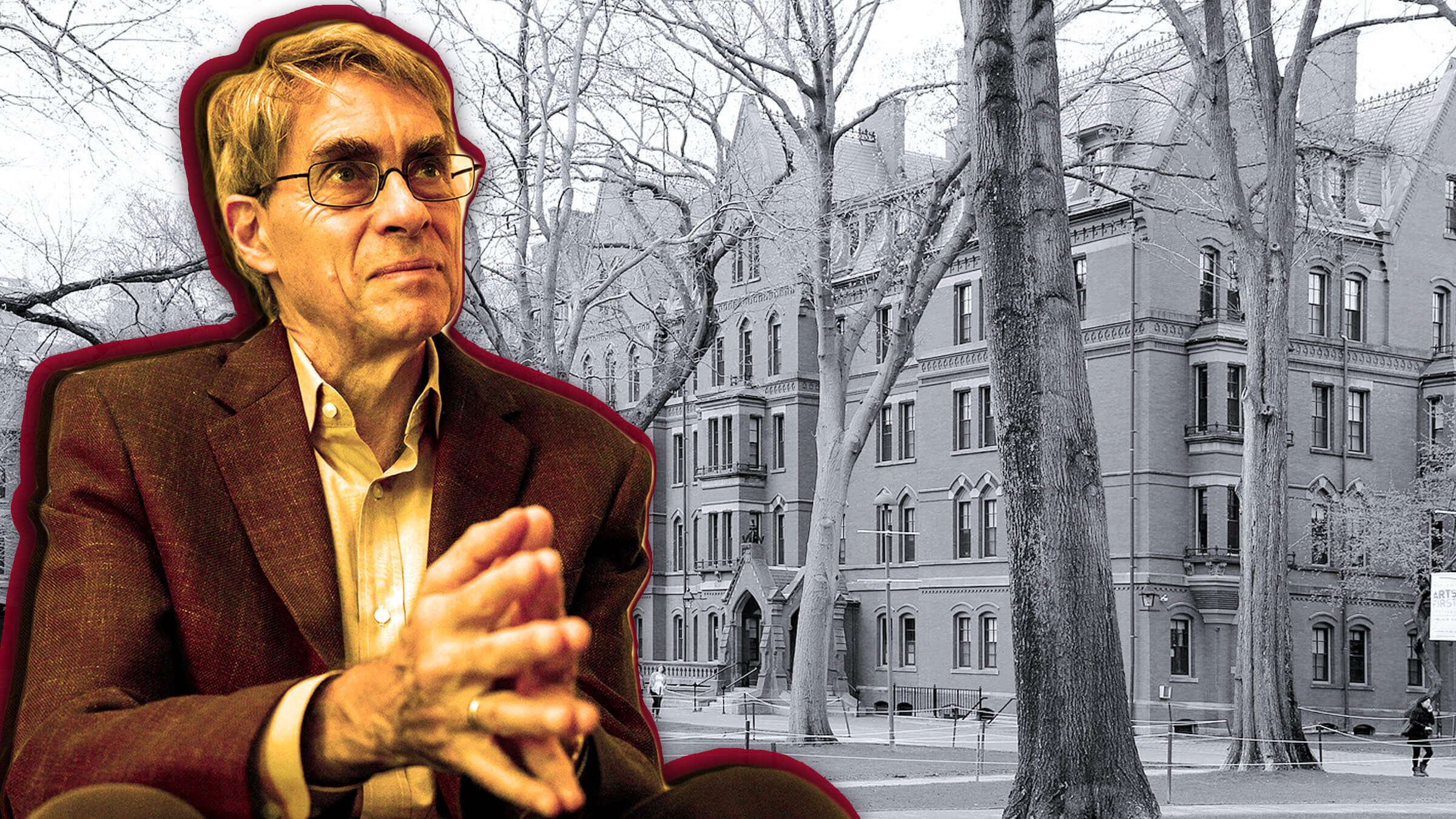I’m an Israeli Harvard alum. Rescinding Kenneth Roth’s fellowship over anti-Israel tweets is a mistake
Kenneth Roth, despite what you think of his comments about Israel, would have been a tremendous asset to Harvard and its students

Former Human Rights Watch executive director Kenneth Roth. Background: Harvard University’s campus. Photo by Angela Weiss/AFP via Getty Images; Forward Montage
Editor’s note: In a reversal of their earlier decision, the Harvard Kennedy School will now offer a fellowship to Ken Roth, the retired head of Human Rights Watch who is publicly critical of Israel, after all. This column was originally published on Jan. 13, 2023, a week prior to the decision.
As someone who strongly believes in academic freedom, I couldn’t believe what I was reading.
Highly respected outlets were reporting that the Carr Center for Human Rights at Harvard Kennedy School was rescinding a one-year fellowship offered to Kenneth Roth, former head of Human Rights Watch. Why? According to Roth, because of his track record and his views on Israel and the occupation.
Kathryn Sikkink, a professor of Human Rights Policy at the Kennedy School, told The Nation that the dean had been concerned about HRW — and Roth’s tweets — having “anti-Israel bias.”
I understand why criticism over Israel’s policies in the occupied territories is a sensitive issue for Israelis and the Jewish community at large. But in academia (and beyond), when it comes to diversity of views, the more the merrier. That is the principle of academic freedom.
To be clear, I reject many of Roth’s expressions, especially so those that are borderline antisemitic such as implicitly blaming Israel’s military operations in Gaza for rising antisemitism. His obsession with bashing Israel also hints to his preconceived biases. But while I don’t agree with many of the criticisms about Israel brought by Human Rights Watch and many other human rights organizations — such as it being an apartheid state, for instance — it’s a fact that the 56-year-old occupation does often result in human rights violations.
But my views, I must admit, had evolved quite a bit. During my teenage years, I was a fierce defender of every policy of the Israeli government. But my experiences in Israel, including serving in the IDF, made me understand that there is a lot to fix.
Ironically enough, though, it was at Harvard a decade ago — after my years in Israel — that I met and befriended Palestinians for the first time in my life. I decided to use that opportunity to force myself and listen to what they had to say. I learned an invaluable amount from disagreements I had when discussing and engaging with them, as well as with many other students and faculty who were severely critical of Israel and its policies. That learning reshaped who I am now and how I express my love for Israel.
There were also a few students who were very critical of Israel — some American and some from Middle Eastern countries other than Palestine — who didn’t want to engage with me or any other Jewish Israeli student at all. Up to this day frustrates me. But it certainly was not the norm.
To me, that’s where you draw the line: In academia you should be welcomed if you are willing to engage and discuss respectfully with everyone who disagrees with you, without engaging, of course, in personal attacks and or racism of any kind.
Kenneth Roth, despite what you think of his record of comments about Israel policies, would have been a tremendous asset to Harvard and its students. In fact, I’d go one step further and claim that it would have been a tremendous asset to Harvard’s Jewish and Israeli students. Everyone would have learned something, perhaps even himself. Among all the things I wish he would have learned is why some of his comments are perceived as antisemitic. Learning is the whole point of a university.
It is impossible for me to defend Harvard’s move, and we all should condemn the decision — and the obsession of trying to cancel people who are critical of Israel. It is a disservice to not only academic freedom, but to ourselves.
Criticism of Israel will not disappear just because we ignore it. With the newly formed government threatening the basic democratic character of the country, this criticism will likely become harsher and harsher.
To be criticized, even if unfairly, is what we signed up for when we joined the community of nations. And to be frank, some of the criticism out there, even if we don’t like hearing it, is fair game. After all, the occupation is still there, and all the ugly things that come with it, and it seems like this situation will not change for the foreseeable future.
Engaging with critics of Israel is our responsibility, and attempting to cancel them only reinforces the view that Israel is not an open society. We must engage with critics not because we hope to change their minds, but because they could change ours in ways that will make us more conscious of the things that we can contribute to make our country a better one.
That is what Israel needs from us now, more than ever.
To contact the author, email opinion@forward.com
A message from our CEO & publisher Rachel Fishman Feddersen
I hope you appreciated this article. Before you go, I’d like to ask you to please support the Forward’s award-winning, nonprofit journalism during this critical time.
We’ve set a goal to raise $260,000 by December 31. That’s an ambitious goal, but one that will give us the resources we need to invest in the high quality news, opinion, analysis and cultural coverage that isn’t available anywhere else.
If you feel inspired to make an impact, now is the time to give something back. Join us as a member at your most generous level.
— Rachel Fishman Feddersen, Publisher and CEO